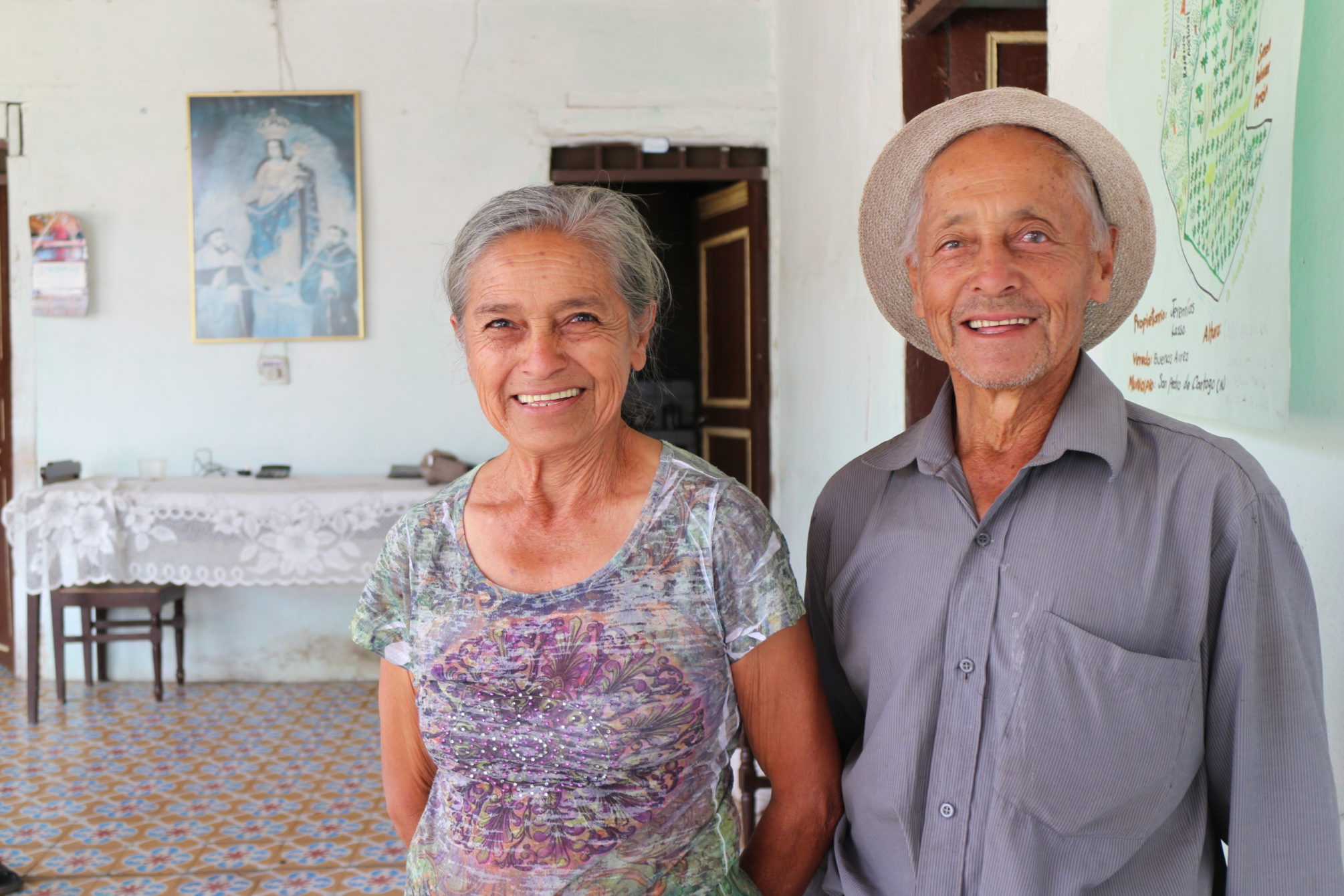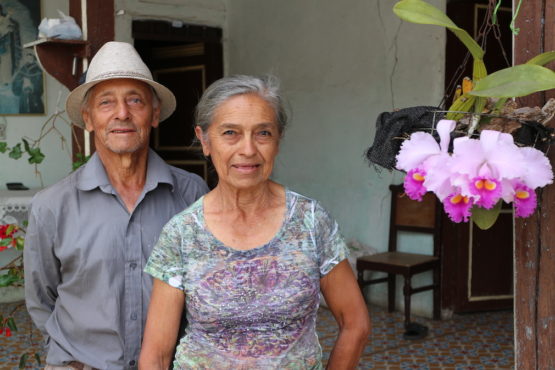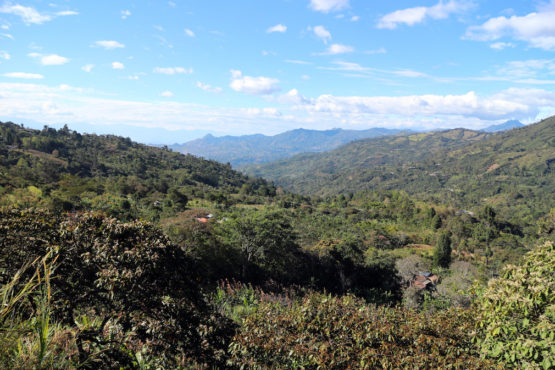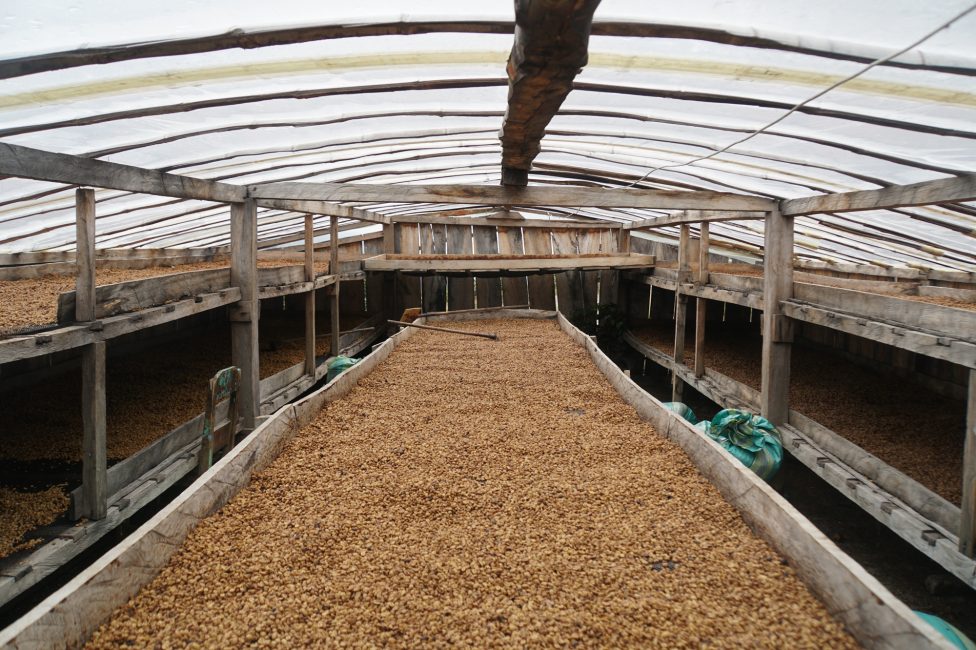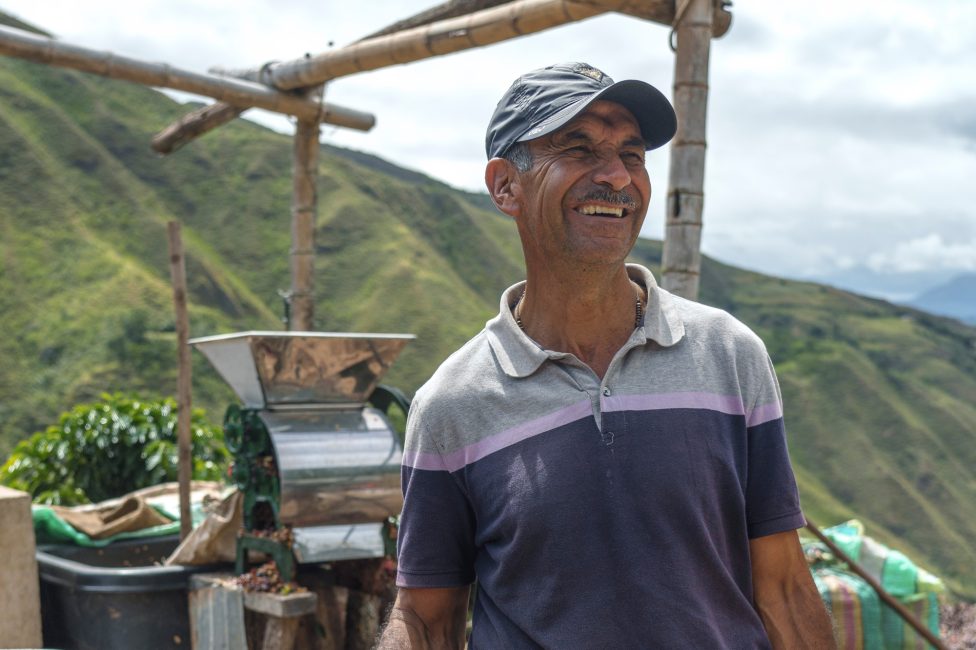Finca Buena Vista
Bright blackcurrant acidity, raisin and date sweetness, with dark cherry, plum and dark forest chocolate cake.
Finca Buena Vista is a small 1.5 hectare farm located near the town of San Pedro de Cartago, Nariño, owned by Victora Lasso. Victoria is the eldest of the renowned Lasso family, the family that founded the regional organisation FUDAM (see below) and which is a symbol of the pioneering spirit in this coffee growing region of northern Nariño.
Victoria manages her farm with her husband Alejandro Ahumada. These days Victoria and Alejandro don’t take part in the most strenuous manual labour conducted on the farm (Alejandro is in his 70s!), however the couple take an active role in managing and overseeing the operations and accounts, and on any given day you can still find the couple walking around the farm for most of the day supervising the work of their employees and making sure the wet mill is working properly and the drying is being done correctly.
Finca Buena Vista is 1.5 hectares in size, and has 5,000 coffee trees planted on it, which are a mix of Caturra and Catuai. After carefully being hand picked, the coffee is pulped and fermented for 24 hours and then dried carefully on raised beds.
Over the last two decades, Alejandro and Victoria have also been able to rely on their local growers’ cooperative to help them. Formed of approximately 60 families from within the municipality of San Pedro de Cartago in Colombia’s Nariño state, Fundacion Agraria y Ambiental Para el Desarrollo Sostenible (The Agrarian and Environmental Foundation for Sustainable Development, or FUDAM) is an organisation devoted to improving human development and environmental sustainability through agricultural practices. FUDAM was originally established in 1999 by members of the Lasso family plus an additional 15 producers. Today, the group represents coffee growers and develops projects in income diversification (such as raspberry farming) and food security. As the group is small, projects and activities are highly democratic and have far wider reach than solely the Foundations’ immediate membership.
Before talking more about FUDAM, it is important to note that the Lasso family (of which Victoria is a member) has been a leader and role model for coffee growers ever since they planted some of the first coffee seeds in the region almost 60 years ago. The Lasso family farm, El Trapiche, has served as a symbol in the region and has promoted coffee growing across the different municipalities surrounding San Pedro de Cartago. Furthermore, the Lasso family was actually the first to own a mechanical pulper in the region, and they still remember how they moved it from farm to farm on top of an old donkey. They passed on the wealth by letting their neighbours use it as well. Although the family today has 6 adult members (sons and daughters of the farm’s founder), it is Doña Raquel, one of the youngest of the family members (and Victoria’s sister), who leads the FUDAM association with a sincere heart and a passion that sees no limits.
ABOUT FUDAM
FUDAM was born out of the Lasso family’s desire to help their neighbours surmount constant obstacles and was initially focused only on women. One of their first projects was to finance one milking cow per woman in the communities where they worked. The idea behind this was to give women economic independence from their husbands, and thus to give them extra income for the household. The project was an immediate success and gave 50 women a different standing with their husbands, which made a huge start towards subverting macho culture in the communities. Another early project was to lobby different NGOs and local governments to get the funds necessary to improve members’ processing infrastructure. On that occasion, the group succeeded in financing 30 pulpers and 30 plastic structures with African beds for drying.
From there FUDAM has moved on to helping growers harness quality coffee as a means to improve the quality of life for its members. They are very active in trying to find specialty markets for their members coffees, using quality competitions to promote and discover exceptional coffees, and working closely with government organisations that fund activities that positively impact quality. Although they have a base of 100 growers, they buy from more than 300 growers across the region and permit non- members to participate in their specialty coffee programs. They have a warehouse in La Union with a cupping lab, where they cup every lot delivered by the growers in order to separate them according to quality.
As means of furthering their goals, FUDAM recently jointed forces with Pergamino, our export partner who is based in Antioquia. Pergamino has developed a special program with FUDAM that includes 200 growers across 5 different towns, and is working closely with these producers to connect them with buyers throughout the world, like us! Pergamino has previously established similar projects with other small producer organizations in Antioquia, Huila and Cauca, all of which have been hugely successful in identifying high quality lots from small producers and helping producers place these coffees at market for a higher price. Pergamino cups with the group frequently during the harvest season and also accepts samples into their lab in Antioquia so that they can provide lots of feedback. The project has already resulted in lots like Victoria’s being separated out and sold at significantly higher premiums.
Pergamino sees great potential for the future of this relationship and have recently established an agreement with FUDAM that includes not only purchasing from the group but also serving as mentors and trainers in the group’s quest for improved quality. In the coming year, cuppers from Pergamino will mentor the group, teaching cupping and helping them establish cupping protocols. As an end result, Pergamino will help find markets for all coffees scoring 84 or above. They also plan to hold workshops on organic fertilizers with growers and to provide expanded technical assistance to help growers improve their quality.
